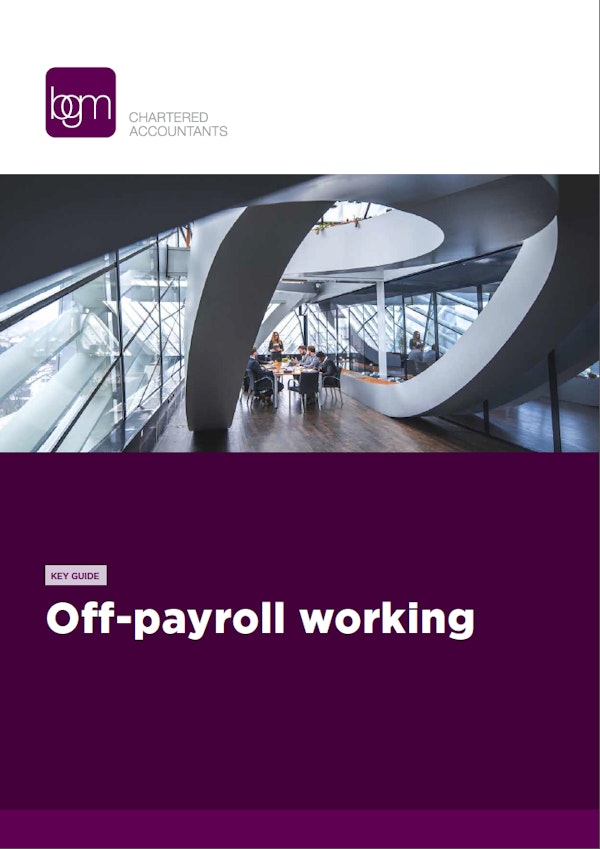Off-payroll working
Three different Tax Treatments
If you work as a contractor, there are three different possible tax treatments which could apply to your engagements depending on your circumstances.
- For contracts not subject to the off-payroll working (IR35) rules, whether working in the private or public sector, you will be in a position to withdraw profits on a very advantageous tax basis.
- If working for a medium or large private sector client, or in the public sector, and the off-payroll working rules apply, then you will effectively be treated as an employee, despite the use of your intermediary company.
- If working for a small private sector client and a contract is caught under the offpayroll working rules, that income will be paid gross to your company, but will then be subject to PAYE. This means much of the tax advantage of not being subject to the off-payroll working rules is lost, although the tax treatment is not quite as onerous as being treated as an employee.

Neither the October 2024 Budget nor the March 2025 Spring Statement made any mention of the off-payroll working rules, so, unfortunately, contractors will have to plan for their continuance for the foreseeable future. The increase to the rate of employer national insurance contributions (NICs) to 15% from 6 April 2025 (it was previously 13.8%) means there is additional cost where a contract is caught under the off-payroll working rules. Additional employer NICs are also payable because the starting point has dropped from £9,100 to £5,000.






